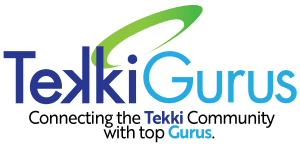Refining Your Social Networking Activities
“Many people take a misguided approach to networking. They go astray by building imbalanced networks, pursuing the wrong kind of relationships, or leveraging relationships ineffectively. These people might remain successful for a time, but often they will hit a plateau or see their career derailed because their networks couldn’t prompt or support a critical transition.”
In the July/August 2011 edition of Harvard Business Review, Rob Cross and Robert Thomas discuss the benefits of smaller, closer networks over larger, more impersonal networks (A Smarter Way to Network). "We’ve found that individuals who simply know a lot of people are less likely to achieve standout performance, because they’re spread too thin." One main problem from maintaining large, impersonal networks, they argue, is that people within your network may "perceive you to be overly self-interested, and you may lose support as a result."
With the rise in enterprise social networking, more and more organizations – as well as individuals – are trying to understand the business benefits of their social connectedness, and are looking more closely at how their largely personal-centric activities can be leverage for their professional lives.
The HBR article provides excellent perspective on analyzing, prioritizing, and managing your network, but (in my opinion) overlooks some important aspects of networks — including the importance of maintaining multiple networks. While the HBR article does not necessarily discourage readers from limiting all personal networking that does not provide some degree of professional return ("sorry sis, these conversations are not helping my business grow"), by only focusing on the professional aspects of your networking activity, you may close yourself off from different perspectives and from a healthier form of "network renewal" where you are able to constantly reassess and refresh the influences and ideas that constantly shape you. Limiting your influences may cause some of the very same myopic tendencies the authors identify.
In reading this article, it brought to mind Malcolm Gladwell’s book Outliers, and a speech he gave at Microsoft Research division a couple years back that I was lucky enough to attend (more on that from an old post). Mr. Gladwell shared some insights into the data behind the dominance of long distance runners from Western Africa. The gist of his message: this region of the world benefits from a huge pool of runners, while Western countries have very limited talent pools (due to cultural, infrastructural, and even self-imposed educational boundaries). Thus, they find more runners than we do, and far better runners, in general.
We have two seemingly divergent and opposing views here: the idea of reducing the noise in our networks by focusing on those relationships that will benefit us the most, and the idea that expanding our networking pool benefits us by increasing our chances of identifying beneficial connections that might otherwise be lost by not casting a wide enough net.
It’s an interesting dichotomy, and made me think about ways to solve this kind of problem through technology. My first thought was around what is probably the best feature in the Google+ platform: Circles. While Google may not be breaking any new ground with their social networking tools, per se, as the concept of grouping subsets of your personal network is nothing new (think Yahoo Groups, which has been highly successful), I believe Circles may best illustrate how to bridge the gap between aggregating and dividing your network to get the most benefit out of your connections. Circles allows you to cast a wide net as you build your network (you can see my profile here and add me!), but then to create smaller subsets of influencers around specific topics, such as my circles for ‘SharePoint’ and ‘Family.’
Of course, before there were Circles, we had Lists and Groups (check out this article on streamlining your social efforts). Both offer a way to very quickly navigate through a sea of chatter, and focus on the social interactions that are really important. Some things you might consider while cleaning up your social networking activities:
- How many of us are still active members of a Yahoo group? I am on a couple. It’s still a very effective (and free) way to manage a distribution list.
- LinkedIn groups have almost entirely displaced my use of Yahoo, providing an even better set of utilities that, unlike Yahoo groups, are connected to comprehensive user profiles and other activities and content. I especially like the email reminders that I can throttle based on volume and content. I use these much the same what that I use/monitor news alerts from my search engine.
- I’m also part of 6 or 7 different Yammer networks (which serve as groups), and then subscribe to Groups within those networks to further refine my interests. While I find that most people do not use the Group functions (they tend to publish to the main stream), and tag even less, it’s become a good tool for surfacing topics and competitive intelligence.
- Twitter has become central to my job – but I consider myself a late adopter (just hit my 5 year anniversary on the platform). It wasn’t until I discovered Tweetdeck and HootSuite that it all clicked into place. I now have a dozen different keywords or brands that I actively monitor throughout the day, and use Twitter to stay on top of critical industry trends and conversations.
There is no right answer here for how to manage your network, but recognize that the tools available to us are slowly allowing us to rethink how we build our personal and professional networks, and to tap into the long tail of personal relationships. Fascinating stuff.





